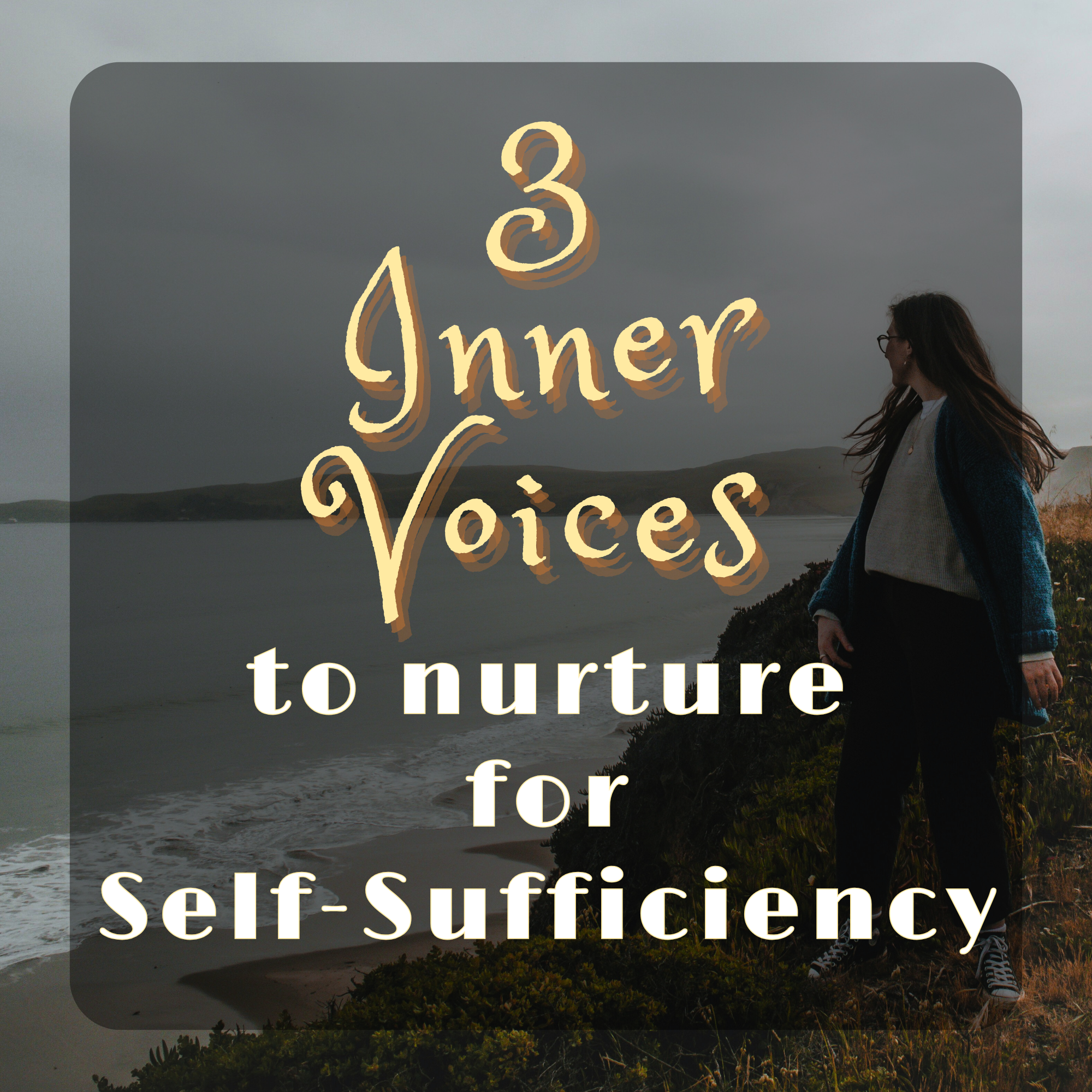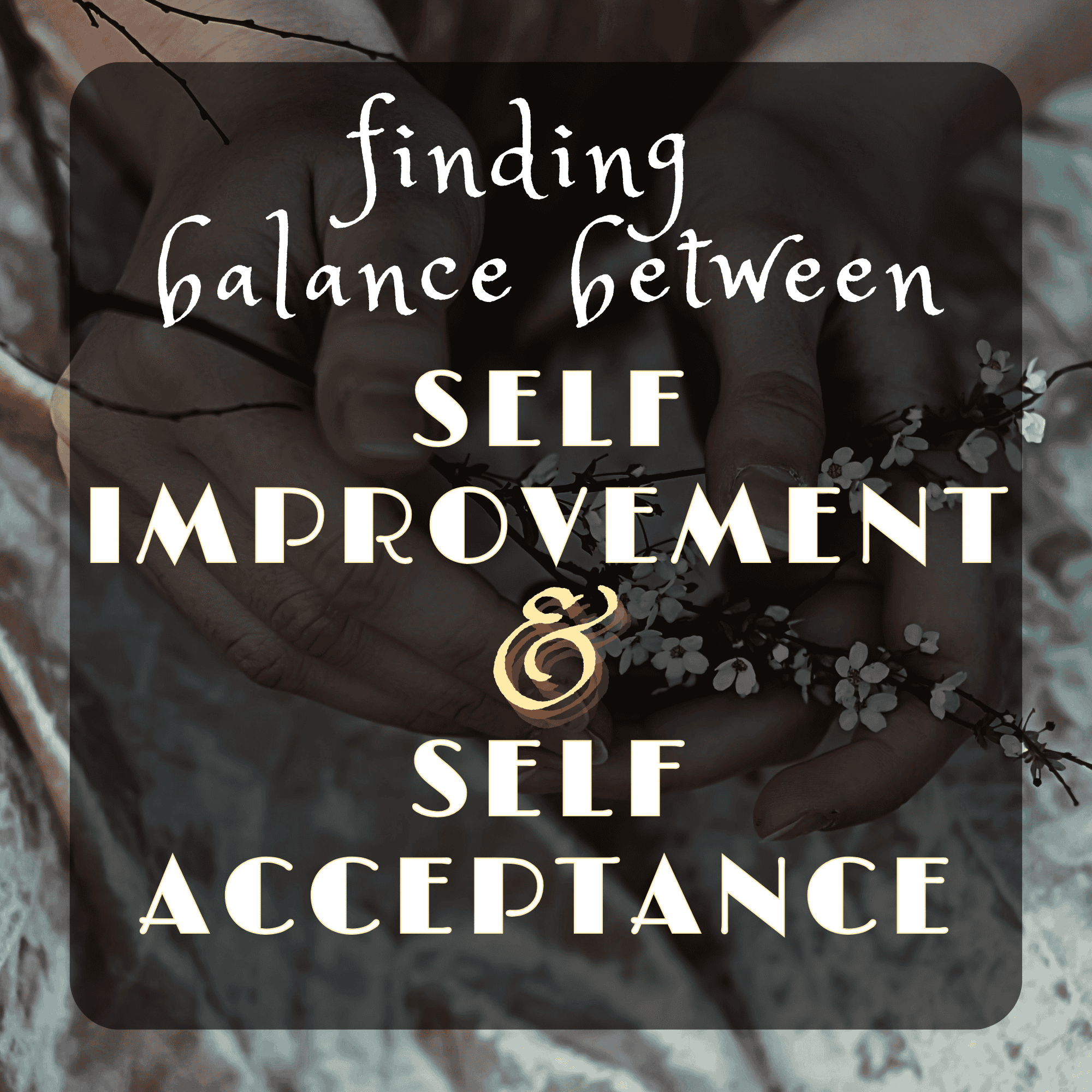Table of Contents

People tend to either get overly obsessive about self-improvement, or write it off entirely. Similarly, self-acceptance is a concept that is easier said than practiced.
In this post we are going to go over how you can balance self-improvement and self-acceptance, so that your mind becomes your friend.
“Self-Acceptance” Getting Toxic ☠️
Having harmful views disguised as self-love or self-respect isolates you from others and can turn you into a nasty person to be around. It also prevents you from finding joy in showing kindness to others and creating community.
Here are examples where the concept of self-acceptance gets a bit twisted.
Some harmful attitudes are: being brutally honest (aka just unnecessarily rude), thinking you don’t owe anyone anything (ex: kindness, respect, gratitude), and excessive selfishness.
Other self-centered traits sometimes disguised as self-love are thinking you are perfect or never wrong, always justifying hurtful actions, or believing that you need no growth whatsoever.
While self-acceptance/ self-care can be associated with these traits, self-acceptance is fundamentally positive and beneficial.
🙂
🙁
Self-love
regard for one’s own well-being and happiness (chiefly considered as a desirable rather than narcissistic characteristic).
Self-obsessed
excessively preoccupied with one’s own life and circumstances; thinking only about oneself.
Self-respect
pride and confidence in oneself; a feeling that one is behaving with honor and dignity.
Egotistical
excessively conceited or absorbed in oneself; self-centered.
Part of the joy in life is growing, changing, and learning from past mistakes.
It is important to remember that more often than not, we are too hard on ourselves rather than too easy. You aren’t going to become egotistical after a few affirmations telling yourself that you deserve happiness and are a good person. So, don’t refrain from practicing self love because you think it will turn you into a selfish narcissist.
“Self-Help” Getting Toxic ☠️
Self-improvement gets dicey when you start to be convinced that the world and other people should be a certain way. It’s crucial to understand that none of us truly know exactly how the world works.
Having a rigid view of life creates a judgemental attitude towards others, and can cause you to feel isolated and depressed.
Another problem that comes from constant obsession over improvement can be the symptom of “saving happiness for later” and never letting yourself be satisfied.
On top of that, the self help industry can be very predatory by exploiting our insecurities and anxieties.
Our capitalist society profits off of us turning ourselves into marketable commodities, and seeing ourselves as a project that always needs to be fixed; chasing better and better – craving more and more. Constantly comparing ourselves to others can bring our mental health down drastically.
Luckily, there is a way to not get so obsessive about it, which we will get into more later.
Self- improvement can be very freeing and fulfilling. It can improve our health and lives greatly. While pitfalls do exist, it is entirely possible to take steps throughout your routines to improve your life and achieve your goals, without becoming too obsessive.
Why a Mixture of Both is Crucial
These two concepts go hand in hand, like two sides of the same coin. They affect each other like the link between mind and body. Having a good balance of both can make the difference in avoiding the negative extremes of either.
When you are able to balance confidence and humility, your life will become much easier. You will be much more capable at handling criticism gracefully. Your relationships will become healthier when you can blend self-sufficiency with modesty and open-mindedness.
Plus, once you get the balance down, you are free to think of yourself less and focus on others, since it is no longer a challenge to ensure your own needs are met.
Both of these topics revolve around the ego, a fundamental part of every person. The ego is not inherently bad or good, but we have the power to make it a positive force for us. There is no getting rid of it, so we must learn how to work with it.
So, how the heck can we actually find this balance?

How to Find Balance
Sometimes self-acceptance and self-improvement can feel like a tug of war in our brains. It can be difficult to know when to take it easy and when to pull yourself up by your bootstraps. Here are some ways to help you understand what you need, and when you need it.
Listen To Yourself
Practice daily habits where you spend time to simply listen to yourself with care and love. This can be 5 minutes to 45 minutes, whatever works for you. Journal or talk about what is on your mind or what you may be ignoring. Allow yourself to cry and/or express any emotions. Try to simply listen without judgment. It makes a world of difference just for us to feel heard.
Remember that this is a skill that takes practice. There is no perfect right answer for every situation. You have to learn what has worked in the past and gauge for yourself what could be helpful.
Support Yourself
There is a gentle and caring voice inside of you. This is the part of your mind you need to train to be louder. With practice in redirecting your thoughts and comforting yourself, this will become easy.
Think of it this way, if your loved one such as your child or a friend were to make a mistake, it wouldn’t be hard for you to comfort them and help them make it better.
Take a step back from yourself and imagine you are talking to that loved one in the situation you are in. If your negative thoughts were things they said about themselves, what would you say to them? Most of the time, we know what we need to hear.
It can be helpful to text your own number if you need to, and read back the supportive things you have sent. Respond to yourself as if you were a friend that you love deeply.
Forgive Yourself for Past Mistakes
If you struggle with loving and caring for yourself, it will be much harder to start unless you also forgive yourself. Forgive yourself for not knowing better until you knew better. You were doing what you had to, and it wasn’t your fault. You deserve to know these things. You deserve to live in peace and start anew.
You are forever growing and changing, the person you were 2 hours ago is not the same person as now. You can always decide to leave a version of yourself in the past and move forward with lessons learned.
Pay Attention To Your Algorithms
Be picky with the content you consume, and think critically on how it may affect you. You can choose what you interact with on the internet, whatever you focus on will multiply.
If you want uplifting content, search it up. If something is making your mindset sour, don’t be scared to click “not interested”, scroll past, or simply turn off your device.
Make sure you aren’t buying into toxic mentalities just because it looks pretty and the person saying it is confident.
Shift Focus Away From Yourself
Avoid being focused on yourself 24/7.
“I have never been the center of attention, you are the center of mine.” –The art of being yourself | Caroline McHugh
Sometimes we just aren’t feeling our best, which is okay. Sometimes the solution is just to avoid the mirrors until you feel a bit better.
A good way to avoid becoming fixated on yourself is to just shift your focus onto others or onto other things. Try being more curious about other people or start a hobby you can find flow in.
Understand Your Motivation
When you want to improve in an area of your life, ask yourself why. Do you want to make more money so you can have peace of mind and freedom, or so you can show off to others?
Try to start from a place of self love and care to begin any self improvement journeys. Both forms of motivation can be helpful, however your improvement will stay fulfilling for much longer when you love doing something for the sake of it.
Intrinsic
belonging naturally; essential.
Extrinsic
not part of the essential nature of someone or something; coming or operating from outside.
Being intrinsically motivated essentially means you do it for the thing itself rather than external validation, while extrinsic motivation is wanting an external reward of some sort.
Understanding your motivation can help you stay mindful of how much you prioritize certain goals, and how much you are willing to sacrifice for them.
Stay Grateful
Appreciate not only the things you have, but how far you’ve come and how much you have survived. Think of as many things as you can to be grateful for, start a gratitude journal if you must!
Practicing gratitude is proven to boost mental health and is probably one of the biggest keys to staying satisfied in the moment while also being excited for the future.
You’ve heard it a hundred times, but here’s another reminder to think of a few things that you are grateful for today. You won’t regret it!






